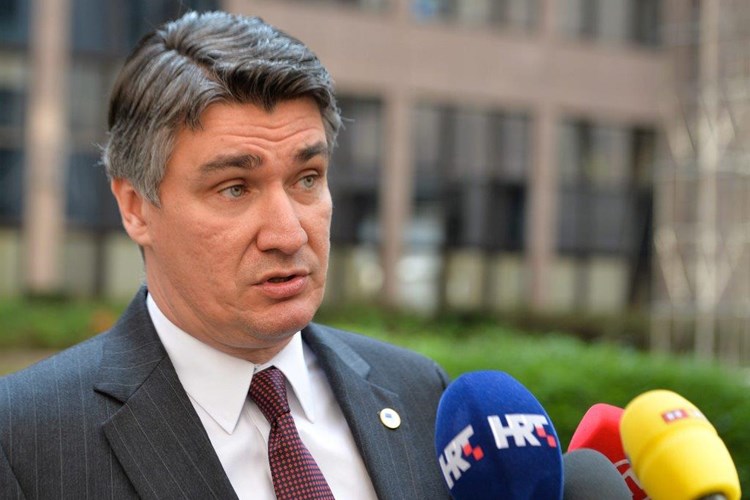- Published: 26.06.2015.
PM Milanovic: Croatia is ready to accept smaller number of refugees
Croatia understands the sufferings of refugees and is prepared to accept a smaller number of migrants because it has its limits and it cannot go beyond them, Croatian Prime Minister Zoran Milanovic said on Thursday.
The migration problem was not created by Croatia, but by large countries. It is difficult to speak about solidarity, but we are prepared to accept a smaller number of people because with can sympathise with them, clearly more than some other central European countries can which are taking a rather radical approach ... But we have our limits and we cannot go beyond them," Milanovic told the press upon his arrival at the EU summit which focuses on migration issues.The European Commission has proposed the relocation of 40,000 Syrian and Eritrean refugees who arrived in Italy and Greece to all member countries and recommend that another 20,000 people, who are currently outside the EU but are entitled to international protection, be admitted.
The Commission proposed redistribution based on several criteria, as well as that quotas be binding.
According to the proposal, Croatia should receive 747 Syrian and Eritrean refugees who are now located in Italy and Greece, and another 315 people who are currently outside the EU, but are entitled to international protection.
Milanovic said these numbers would not be binding, but would be on a voluntary basis.
"These number will be voluntary, I see no possibility for this to be any other way because resistance of some countries towards the fact that the Commission is setting these quotas is too big. And Croatia is prepared, for humanitarian reasons, to accept a smaller number of people, but we cannot go beyond that," Milanovic said.
Asked if Croatia would join the Visegrad group (The Czech Republic, Slovakia, Hungary and Poland) who are opposing the binding quotas the most, Milanovic said he saw no need for that.
"I don't wish to pry in their business. They have their reasons. As far as Croatia is concerned, I am glad to say that the public's reaction was not xenophobic or militant, there were no marches in Zagreb and other Croatian cities, organised by extreme rightists."
He added he was not afraid of a possible larger number of migrant arrivals in case Hungary decides to close its borders as it had announced.
Milanovic described as weird the statement by Hungarian Minister Janos Lazar who said that Croatia's behaviour posed a security threat for Hungary because Croatia was carrying out the proceedings in the INA-MOL case and refusing to open gas pipe lines towards Hungary,
The statement of that minister is a little weird. Regardless of their differences concerning INA, Croatia and Hungary are friends and nobody in Croatia wants to block Hungary in any way, because all these energy routes are in the end in Croatia's financial interest, Milanovic said.
He added that the Croatian government would ask Hungarian Prime Minister Viktor Orban, as a NATO ally, to send two Gripen airplanes to Zagreb for a military march.
One of the topics to be discussed at the summit is the future of Great Britain in the European Union. British Prime Minister David Cameron has announced a referendum on Britain's future in the EU by the end of 2017. Milanovic said he had talked about this with Cameron over the phone. Cameron was scheduled to visit Zagreb on 18 July, but given that Milanovic was on a visit to Japan, the two prime minister spoke over the telephone.
Milanovic also commented on the latest opinion poll according to which the Social Democratic Party-led coalition has, after a longer period of time, surpassed the Croatian Democratic Union coalition. "Opinion polls can deceive you. We have tried and worked hard, I am confident people can see that now," Milanovic said.
He also commented on statements by Serbian Prime Minister Aleksandar Vucic and Labour Minister Aleksandar Vulin about Cardinal Alojzije Stepinac.
"It isn't appropriate for me to give advice to Belgrade, and I don't think it is appropriate for the Catholic church in Croatia to give advice to the Croatian government. I am a representative of all Croatian citizens. As long as I am prime minister I cannot condone this," Milanovic said.
Text: Hina
